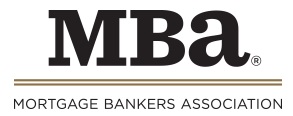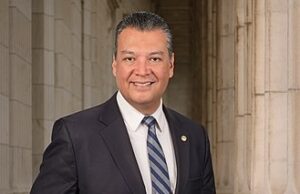WASHINGTON, DC – April 26, 2011 – (RealEstateRama) — Potential homeowners who participate in prepurchase education and counseling programs may be more likely to pay their mortgages on time, although the evidence on this point is not consistent and compelling, according to a study released today by the Mortgage Bankers Association (MBA). The study also finds that those who participate in default counseling are more likely to have their loans modified.
The study entitled, “Homeownership Education and Counseling: Do We Know What Works?”, which was conducted by J. Michael Collins and Collin O’Rourke of the PolicyLab Consulting Group and sponsored by MBA’s Research Institute for Housing America (RIHA), examines the effectiveness of the predominant types of pre-purchase and post-purchase counseling and education and discusses recommendations for future studies on the effectiveness of these programs.
“Over the past decade, concerns have been raised about the extent to which Americans as a whole are sufficiently financially literate to make the complex decisions required in the ever-changing financial marketplace,” said Collins. “In response to these concerns, pre-purchase homeownership education and counseling programs proliferated before the current housing downturn. To the extent education or counseling supports stable homeownership, the public has an interest in expanding these programs to prevent the negative impacts of unsuccessful homeownership (e.g., drops in property values due to foreclosure).”
“In theory, homebuyer education and counseling could help in three ways: 1) Formalized education and counseling programs can lower the costs of obtaining information about how to buy a home and obtain a mortgage. 2) Objective, third-party counselors or educators can help clients avoid emotional judgments that may not be in the client’s long-term interest. And 3) Homeownership education and counseling programs can facilitate more efficient transactions, make more information available and reduce the level of support needed from real estate and mortgage professionals.”
“In practice, the results from education and counseling programs vary significantly. A fundamental issue arises when researchers attempt to estimate the effects of these programs– borrowers who participate in these programs are different from those who do not– in ways that do not show up in the data, which makes it difficult to generate robust research results. In summary, do we know what works? The short answer is –no,” concluded Collins.
“Public funding for homeownership counseling and education has increased considerably over the past few years in response to the housing crisis, though future funding levels in a time of budget austerity remain unclear. Although there are several reasons to expect that education and counseling could and should be effective, the evidence showing the effectiveness of these programs is simply not there, primarily because of problems with the design of existing studies,” said Michael Fratantoni, MBA’s Vice President of Research and Economics. “Moreover, there is no compelling indication regarding which methods of counseling or instruction might work best. Future studies should adhere to more rigorous research designs, so that the results can be confidently generalized to inform policy regarding these programs.”
Key findings from the study include:
-This study reviewed 18 separate evaluation studies. Sample selection biases plague most of these studies.
-Some pre-purchase programs were found to reduce the incidence of any form of mortgage default by as much as 34 percent, but many studies found no such effects.
-At least one study suggests programs may result in accelerated pre-payment of mortgages.
-Just over 2.1 million clients received one-on-one housing counseling from HUD-approved agencies in FY2010 according to HUD reports. But the services delivered varied. About 245,000 received pre-purchase counseling, 205,000 received help with home repair or a reverse mortgage, 278,000 received help related to rental housing, 37,000 received homelessness
counseling and 1.4 million received foreclosure prevention counseling.
-Among clients attending pre-purchase education, about 17 percent were reported as purchasing a home and another 26 percent anticipated buying within three months. HUD data suggest counseling agencies were involved in more than 301,000 loan modifications in FY2010.
To view the full report, please visit the RIHA website at http://www.housingamerica.org/Publications/HomeownershipEducationandCounseling:DoWeKnowWhatWorks.htm
###
The Mortgage Bankers Association (MBA) is the national association representing the real estate finance industry, an industry that employs more than 280,000 people in virtually every community in the country. Headquartered in Washington, D.C., the association works to ensure the continued strength of the nation’s residential and commercial real estate markets; to expand homeownership and extend access to affordable housing to all Americans. MBA promotes fair and ethical lending practices and fosters professional excellence among real estate finance employees through a wide range of educational programs and a variety of publications. Its membership of over 2,200 companies includes all elements of real estate finance: mortgage companies, mortgage brokers, commercial banks, thrifts, Wall Street conduits, life insurance companies and others in the mortgage lending field. For additional information, visit MBA’s Web site: www.mortgagebankers.org.











